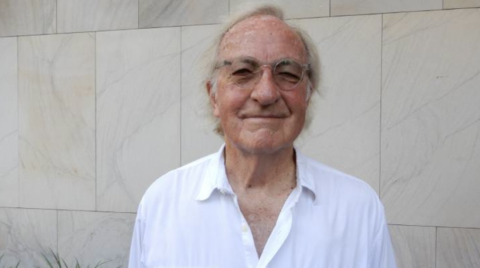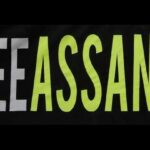If Assange Is Sent to the US, He Will Die, Pilger Says, as Australia Continues to Collude

“I don’t think there is any doubt in my mind, as there is no doubt in the minds of his loved ones, that if Julian goes to the United States, and is effectively dropped in a penal hellhole, that will be the end of him,” Australian journalist John Pilger said over the weekend. “Literally, he will die.”
The veteran journo made the remarks on the South China Morning Post program Talking Post With Yonden Lhatoo. Pilger added that the torture – not a word he uses “idly” – the WikiLeaks founder has suffered over the last decade has taken an extreme toll, as court evidence has shown.

These sentiments were expressed just three weeks after UK home secretary Priti Patel officially signed off on the Australian’s US extradition. And as the legal avenues to challenge grow slim, Julian’s lawyers have filed to appeal the decision to the UK High Court.
Assange has been locked up in London’s Belmarsh Prison since 14 April 2019, and there have long been concerns that he may take his own life.
Even so, the US had made clear early on that it was planning to incarcerate him under its “special administrative measures” regime, which involves extreme isolation and other restrictions usually reserved for terrorists.
On 4 January 2021, the Westminster Magistrates Court ruled against the extradition, as it found the US couldn’t guarantee Assange’s life in its prison system.
But Washington went on to provide four assurances, asserting that it wouldn’t subject Julian to the SAMS regime, unless his behaviour warranted it in the future, and further it would allow him to serve his time in Australia. And, on appeal, the High Court overturned the ruling.
Although, many don’t trust these US guarantees, especially as it was revealed last year that the White House had discussed kidnapping the journalist from London’s Ecuadorian Embassy, where he sought refuge for seven years, and further, it even flagged assassinating him.
For the crime of journalism
“If Julian is extradited to the United States, I think it will effectively end real independent investigative journalism,” Pilger told Yonden. “Who will take that risk again?”
The White House is pursuing Townsville-born Assange over his having published around 700,000 classified US government documents over 2010-11, which exposed numerous American crimes in Iraq and Afghanistan, along with questionable diplomatic practices.
These documents were leaked to Assange by then US army officer Chelsea Manning. And Julian followed regular journalistic practices in publishing them, after he’d redacted the files to ensure lives weren’t endangered. And some of the most respected global newspapers also printed the secrets.
Then, in April 2019, the US reached across international borders to have the Australian arrested and later remanded on its behalf.
Washington subsequently produced an 18 count espionage indictment, which sees the WikiLeaks founder, who committed no crimes, while his acts of journalism were carried out on foreign soils, is facing a joint maximum penalty of up to 175 years behind bars.
Indeed, many question the extraterritoriality the US has used in attempting to pluck Assange from a foreign nation for publishing outside of its borders, yet the department of the UK home secretary, who approved extradition, is pushing for local “unofficial disclosures” laws to facilitate such moves.
A UK Home Department inquiry has recommended that exposing classified information should be punished in a similar manner to espionage. And those making such disclosures be dealt with like spies, in a move that would allow for the prosecution of non-British citizens for such behaviour.
Canberra’s silence
“Anthony Albanese has said ‘enough is enough’,” continued Pilger, citing a 2021 statement regarding Assange. “He doesn’t mention that in fact the man has committed no crime, and this is a journalist fighting for his life and for the right of real journalism to publish the truth about governments.”
The new Australian prime minister made these comments in early 2021. And since taking the top office this year, Albanese said in response to a question about the Australian journalist on 31 May that his “position is that not all foreign affairs is best done with the loud hailer”.
However, three weeks after the new leader suggested his government was doing some backdoor diplomacy in Assange’s favour, Patel greenlighted the extradition, and his Australian supporters are questioning how seriously the PM is taking his effort to see the case dropped.
According to Pilger, its simply the same line successive Australian PMs have been taking in regard to the Australian journalist since he first sought refuge in the Ecuadorian embassy in June 2012, and he likened it to the position this nation is taking in terms of blindly following the US into war with China.
“This was an Australian responsibility. The man is an Australian,” Pilger underscored. “Does nationality mean nothing?”
“Well, apparently, it means nothing, because Australia has not only done nothing, it has colluded with the United States to keep Julian where he is.”







